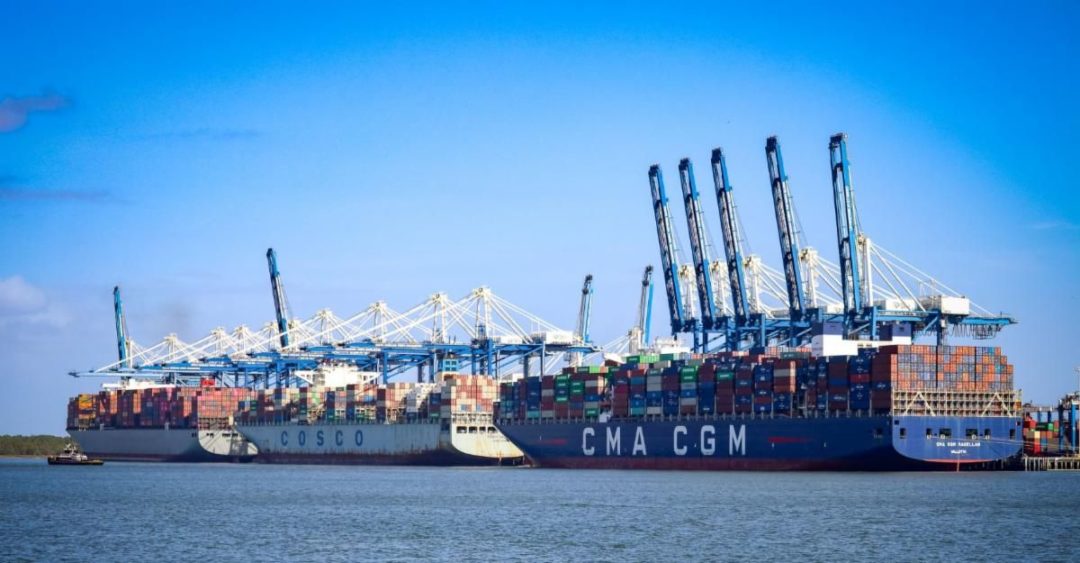Home » Ports post mixed results for October
Ports post mixed results for October
Volume remained up on the East Coast, down in the West, as cargo owners manage shifting supply chain demands.

Cargo volume remained strong on the East Coast in October, but fell in the West, marking the continuation of a shift that began earlier this year.
The South Carolina Ports Authority handled a record number of containers last month, marking the third busiest month in the port’s history. Total volume was up 9% year-over-year, with the port handling 256,879 twenty-foot equivalent units (TEUs), officials said Tuesday. Imports rose 13% year-over-year, reflecting strong consumer demand.
Port officials also said they managed the higher volumes without any backups.
“Our excellent SC Ports teammates and maritime partners seamlessly handled record cargo volumes in October,” SC Ports President and CEO Barbara Melvin said in a press release. “We have maintained berth availability and terminal capacity since early May, making SC Ports the only major East Coast port without ships waiting to access our terminals.”
The port recently handled three 1,200-foot ships simultaneously at its Wando Welch Terminal—a first for the 40-year-old container terminal, which has been enhanced with big ship capabilities and more cargo capacity as part of recent port upgrades and expansion.
South Carolina Ports also handled 14,365 rail moves at Inland Ports Greer and Dillon, 17,996 vehicles at Columbus Street Terminal, and 24,406 cruise passengers at Union Pier Terminal last month.
It was a different story on the West Coast, where this week officials at the Port of Los Angeles reported a 25% decline in monthly cargo volume for October, handling 678,429 TEUs. The port has processed more than 8.5 million TEUs during the first 10 months of 2022, about 6% down from last year’s record pace. The decline reflects cargo owners’ efforts to bring in products earlier this year, as well as a shift away from the West Coast due to ongoing labor negotiations, according to Port of Los Angeles Executive Director Gene Seroka.
“With cargo owners bringing goods in early this year, our peak season was in June and July instead of September and October,” Seroka said in a press statement. “Additionally, cargo has shifted away from the West Coast as some shippers await the conclusion of labor contract negotiations. We’ll do everything in our power to get that cargo back because the best route between Asia and the United States is straight through the Port of Los Angeles.”
Loaded imports reached 336,307 TEUs in October, down 28% compared to the previous year. Loaded exports came in at 89,722 TEUs, a decline of 8.7% compared to last October. Empty containers landed at 252,401 TEUs, a 25% year-over-year decline, according to port data.
Maritime & Ocean Ports ContainersRelated Articles
Copyright ©2024. All Rights ReservedDesign, CMS, Hosting & Web Development :: ePublishing